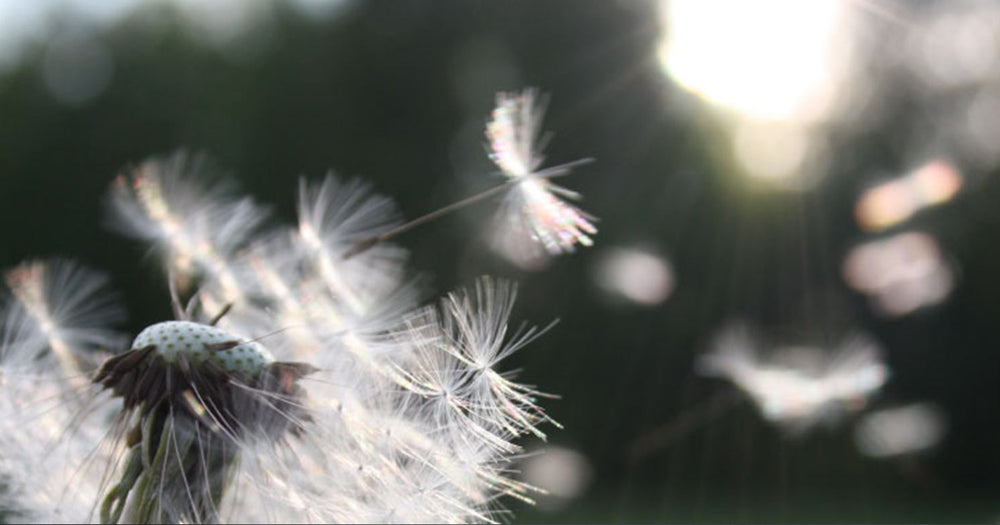Sneezing, wheezing, red eyes and more, the discomfort of seasonal allergies can sneak up and wreak havoc on your well-being. Whether you’re used to the yearly onslaught of unwelcome symptoms or are brand-new to the frustrating experience, there are ways to alleviate the pain.
Read this article to learn:
- What are seasonal allergies?
- Seasonal allergies causes
- Types of seasonal allergies
- What to do for seasonal allergies
Seasonal allergies can happen at any time of the year and impact all kinds of people. You don’t have to suffer. There are many ways to ease your symptoms and find relief.

What are Seasonal Allergies?
Seasonal allergies occur at different times of year, triggered by numerous environmental factors. With the changing of the seasons, different kinds of airborne pollen are released, which can cause severe seasonal allergy symptoms in certain people. Severe seasonal allergies usually kick into high gear during the change from cold to warm weather.
Seasonal Allergies Causes
Seasonal allergies may be triggered by the growth of certain plants. Common culprits include:
- Grass pollen
- Ragweed pollen (which causes hay fever)
- Tree pollen
- Sagebrush
- Tumbleweed
- Thistles
Seasonal allergies causes are usually traced back to these and other plants because they produce irritating pollen. Warm, windy weather is the worst weather for seasonal allergies, as this dynamic increases pollen counts and spreads it everywhere.
Seasonal allergies symptoms include:
- Allergic rhinitis: nasal irritation and running/stuffy nose
- Sneezing
- Watery, itchy eyes
- Itchy throat
- Congestion in the ears, throat and nose
- Postnasal drip (tickly throat)
- Coughing
- Headaches
Seasonal allergies are often connected with hay fever. One or both of these impact numerous people in the U.S. each year.
Types of Seasonal Allergies
There are a few different ways seasonal allergies can negatively impact your health. This is because your body reacts to allergens in different ways. The Centers for Disease Control and Prevention reports that, in gathered surveys from 2018:
- 5.2 million children in the U.S. under the age of 18 had hay fever
- 7.1 million children in the U.S. under the age of 18 had respiratory allergies
- 12 million people visited their physician and were diagnosed with allergic rhinitis
Additional types of seasonal allergies, or secondary illnesses that result from these, include:
- Contact dermatitis
- Hives
- Asthma or milder breathing problems
- Itchy skin, nose, throat
- Conjunctivitis (pink eye)
Symptoms can occur in people of different ages. Pediatricians are trained to identify seasonal allergies in toddlers and seasonal allergies in children. Especially when it's cold season, it can be tricky to tell the difference between an illness and allergies. Seasonal allergies in kids are especially important to treat, as they can lead to recurring earaches and other infections.
What to do For Seasonal Allergies
Seasonal allergies treatment ranges from home-remedies to seasonal allergies medicine. When you are seeking seasonal allergy relief, there are a few routes you can take:
- Reduce exposure by staying indoors
- Don’t do yard work or gardening
- Shower and wash hands when you come indoors
- Use a pollen mask for outdoor time
- Allergy shots or immunotherapy
- Oral antihistamines
- Decongestants
- Nasal spray
- Rinse your sinuses (nasal irrigation)
- Plant supplements, like butterbur and spirulina
- Acupuncture
In addition to these traditional and alternative methods, the Mayo Clinic explains that keeping indoor air clean is an essential aspect to warding off the symptoms of seasonal allergies. They suggest always using the air conditioning and looking for a high-efficiency particulate air (HEPA) filter in your bedroom. For severe seasonal allergy sufferers, you may need to invest in a whole house central air purifier. This provides the highest level of air purification for your entire home.
Go here to research small and large room air purifiers.
Go here to research whole house air purifiers.
Seasonal allergies treatments can largely offset your symptoms. However, the seasonality of your allergies may be hard to pinpoint, making a medicinal approach challenging. In other words, your symptoms may come before you begin a nasal steroid or allergy medication, which means you still suffer.
One of the best ways to ensure year-round comfort in your home, and prevent both seasonal allergy symptoms and other allergic reactions, is to run an air purifier. And Air Oasis is here to help.
Air Oasis Air Purifiers for Seasonal Allergies
According to experts at the National Phenology Network, spring has sprung early this year! Many parts of the country are experiencing unusually early warm weather. What does this mean? It means that, if you suffer from seasonal allergies, you need to be prepared to address symptoms earlier than usual! One way to do this is to ensure that your indoor air is as pure as possible. Go here to learn about the Air Oasis air purifier that will work best for your home, and get ready to enjoy a gentler allergy season.
Love our iAdapt Air
Review by Julie S. on 29 Oct 2019
We love our iAdapt air machines. One of my kids accidentally shut one off and I didn’t realize it. But my nose told me to go look! The air quality was poor and I found that one was shut off. If you are on the fence about buying one, just try it. We LOVE ours! I’m so glad we went with it because our allergies have decreased significantly! Thank you



